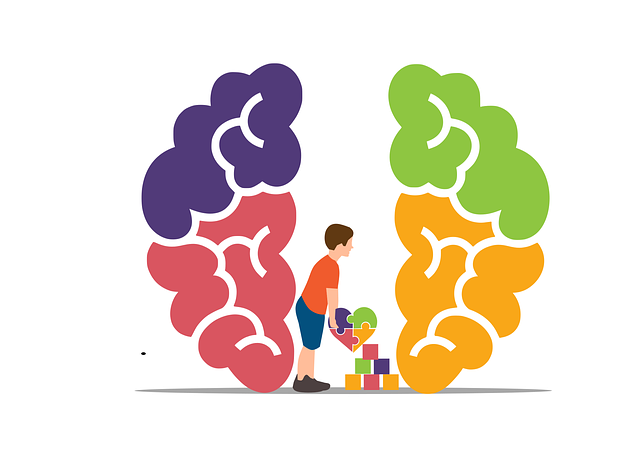In Colorado Springs, mental health is often overlooked during divorces, complicating proceedings and exacerbating emotional distress. Mental wellness journaling and specialized therapy, like Colorado Springs Divorce Therapy, are key tools for coping. Local mental health advocacy initiatives break down stigmas, promote specialized counseling, and empower individuals to make informed decisions about their well-being, leading to more positive divorce outcomes and a stronger community. These efforts require multi-faceted approaches, including self-care workshops and policy collaborations, to ensure accessible and effective mental health support.
Mental health advocacy initiatives play a pivotal role in supporting individuals navigating complex emotional landscapes, especially during life-changing events like divorce. In Colorado Springs, access to quality divorce therapy services is paramount, yet many couples face barriers. This article explores the profound impact of mental health on divorcing couples and delves into effective strategies for launching and sustaining advocacy initiatives. By understanding these challenges, we can foster a more supportive environment for those seeking Colorado Springs divorce therapy.
- Understanding the Impact of Mental Health on Divorcing Couples in Colorado Springs
- The Role of Advocacy in Promoting Access to Quality Divorce Therapy Services
- Effective Strategies for Launching and Sustaining Successful Mental Health Advocacy Initiatives
Understanding the Impact of Mental Health on Divorcing Couples in Colorado Springs

In Colorado Springs, the impact of mental health on divorcing couples is a critical aspect often overlooked in the midst of legal proceedings and emotional turmoil. This bustling city, with its vibrant landscape, can be a complex environment for individuals navigating divorce, especially when mental wellness is already compromised. The process can exacerbate existing mental health issues or trigger new ones, emphasizing the need for comprehensive support. Many couples find themselves entangled in a labyrinthine web of emotions, causing them to withdraw or struggle to communicate effectively. This challenges their ability to make informed decisions and further complicates the divorce process.
Mental wellness journaling exercises and resilience-building guidance can be instrumental in helping these individuals cope with the stressors associated with divorce. By fostering open dialogue through journaling, couples can gain valuable insights into each other’s perspectives, enabling better conflict resolution techniques. Such practices promote self-awareness and emotional regulation, which are essential for navigating the complexities of divorce amicably. Additionally, access to Colorado Springs divorce therapy services specializing in mental health integration can significantly enhance the resilience-building process, ultimately leading to more positive outcomes for both parties.
The Role of Advocacy in Promoting Access to Quality Divorce Therapy Services

In the context of mental health advocacy, promoting access to quality divorce therapy services plays a pivotal role in supporting individuals navigating complex emotional transitions. Colorado Springs Divorce Therapy has emerged as a vital resource, offering specialized support for couples facing separation or divorce. Through active advocacy initiatives, local communities are raising awareness about the significance of pre-divorce counseling and post-divorce therapy. These efforts aim to reduce the mental illness stigma associated with divorce and foster healthier coping mechanisms. By encouraging individuals to seek professional help, advocates emphasize that seeking anxiety relief through evidence-based practices is not only beneficial but essential for effective conflict resolution techniques during this challenging life phase.
Advocacy initiatives in Colorado Springs have been instrumental in ensuring that divorce therapy services are accessible and affordable for all. They work towards breaking down barriers by providing education, resources, and support networks. By doing so, they enable individuals to make informed decisions about their mental health and well-being during and after divorce. These efforts ultimately contribute to building a more resilient community where individuals can find the help they need to navigate divorce with dignity and improved mental health outcomes.
Effective Strategies for Launching and Sustaining Successful Mental Health Advocacy Initiatives

Launching and sustaining successful mental health advocacy initiatives requires a multi-faceted approach that goes beyond mere awareness campaigns. One effective strategy is to integrate Self-Care Practices into community programs, empowering individuals with tools for managing their mental well-being. This could involve hosting workshops on stress reduction methods tailored to diverse populations, ensuring accessibility for all, including those seeking Colorado Springs Divorce Therapy. By fostering a culture of self-care, advocates can create a supportive environment that encourages open conversations about mental health challenges.
Moreover, collaboration with local governments and policymakers is pivotal. Advocating for evidence-based Mental Health Policy Analysis allows initiatives to gain traction and secure long-term support. This involves lobbying for policies that improve access to quality mental health services, integrate mental health education into schools and workplaces, and promote inclusive practices. By combining grassroots efforts with policy changes, advocacy initiatives can drive systemic transformations, ultimately enhancing the overall mental health landscape.
Mental health advocacy plays a pivotal role in ensuring divorcing couples in Colorado Springs have access to quality therapy services. By understanding the unique challenges they face, we can foster an environment that promotes healing and well-being. Launching and sustaining successful mental health advocacy initiatives requires collaboration between professionals, community organizations, and policy makers to address the growing need for accessible and affordable therapy in this region. Through strategic efforts, we can revolutionize the support system for divorcing individuals, fostering a brighter future for all Coloradans navigating this life transition.














